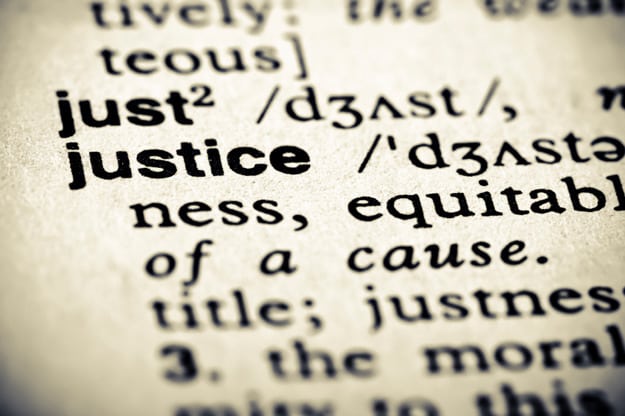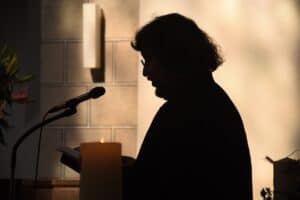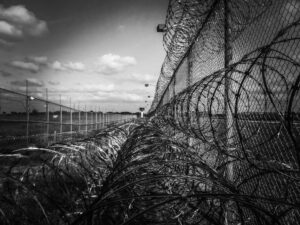
A lot of press has been given over the years to the Old Testament laws regarding the poor, the widow, the orphan, and the alien. In looking recently at the gleaning laws in Leviticus 19:9-10, which require the Israelites to only plow their fields once so that the poor may come and harvest food for themselves, and the Year of Jubilee in Leviticus 25:8-55, which requires that all Israelites return to ownership of their ancestral lands every 50 years, I have found myself challenged again by the revolutionary character of these ordinances for the ordering of the life of God’s people. As someone who has embraced working with the poor as a result of my reading of the Bible, I hope that these texts may continue to breathe imaginative, revolutionary life into the church if she has ears to hear. Several totally counter-cultural themes emerge:
1) Both policies relativize the personal rights of particular property owners in order to absolutize the right of all people to provide for themselves through work. Israel was an agrarian economy, and land was the primary factor of production. The land itself was an inheritance given to the families of Israel from the Lord. And yet, the Israelite landowner is required to give access to his land to non-owners (the poor, the widow, and the alien) so that these marginalized folks may pick what’s left and feed themselves by their own labor. At the Jubilee, all the land that a family had lost would be returned to them so that no family would become permanently landless. What we shouldn’t miss, though, is that this is only possible because all the landowners who had gained farms were required to give them back. This is not redistribution of income; it is a redistribution of the means of producing income.
2) Both policies enable the poor to provide for themselves through their own work in both the short and long term. The gleaning laws guaranteed that the poor person could eat tomorrow. The Year of Jubilee would guarantee each family’s right to ownership, which would allow them to produce a surplus for themselves in the future. Neither is a “hand out,” because both require the poor to work the land. And yet both require the rich to give up their rights to squeezing out their profit from the land or from bequeathing the hard-earned fruits of their labor to their children.
3) The Year of Jubilee in particular prohibits multi-generational poverty . . . AND multi-generational extreme wealth. Again, it is not income that is redistributed but the means of producing income. While in our society we have often encouraged the wealthy to “make as much as you can and then give it away,” Israel instead enshrined an ethic by which permanent wealth acquisition and a permanent slip into poverty were both prohibited by the simple mechanism of regularly “starting from scratch” through a redistribution of ancestral lands.
4) Neither ordinance pays any attention to HOW the poor became poor. If a person’s land was lost because of famine, that family would have access to gleaning until the Jubilee. But if the person, like some of the characters referred to in Proverbs, drank up their money and lived a life of sloth, they too, or at least their descendants, would be able to return to their ancestral lands. Further, there is no commandment about how to screen gleaners to ensure that they’re the “deserving poor.” Everyone has a fresh start.
THE BASIS OF THE BIBLICAL COMMANDS
What are the foundations of such radical rules for corporate living? Three which are made explicit in the Old Testament come to mind, and each is every bit as counter-cultural as the themes above.
1. God is TRULY the owner of EVERYTHING. The OT relativizes an individual’s right to ownership of anything in light of God’s ownership of everything. “The land must not be sold permanently,” says the LORD, “because the land is mine and you are but aliens and my tenants” (Leviticus 25:23-24). The same relativizing of ownership applies to the slavery or indentured servant-hood of fellow Israelites which wealthier Israelites might consider the just desserts of their stewardship and labor: “Because the Israelites are my servants, whom I brought out of Egypt,” says the LORD, “they must not be sold as slaves.” It is as if God says “The Israelites are my slaves, and nobody else’s.”
2. The other foundation for these laws is more subtle but equally profound. It is a relativizing of the EXPERIENCE of the wealthy. This happens through God’s constant reminding the wealthy of their not-so-glamorous past, and of the sources of their wealth. So, for instance, Exodus 23:9 calls on Israel to be kind to the alien because they used to be aliens in Egypt. In Deuteronomy 6:10-11 (and elsewhere) God reminds the Israelites that he is bringing them into a land with vineyards and olive groves that they did not plant, that the abundance of their inheritance is none of their own making. This connects directly to the gleaning laws: the poor have a right to these vineyards of “yours” because in fact you did not plant them yourself and they do not belong to you; the LORD brought you into this abundant land. Indeed, throughout the Old Testament, the LORD grounds commands for their life together on the basis that it was the LORD who brought them out of slavery from Egypt. None of their success and abundance is based on their own efforts. Meanwhile, in speaking of the poor, the LORD explicitly grounds these economic laws in terms of enabling one’s fellow Israelite brothers and sisters “to continue to live among you” (Leviticus 25:36). And so the wealthy are reminded that they have been graciously given all that they have, and the poor are reminded that they have a secure place at the table among God’s people.
3. Finally, the implication of the previous two foundations is that the Israelites were to live out an economy of ABUNDANCE in which God’s just provision among all His people was pursued and expected. In the Year of Jubilee the land itself would provide all the food that was necessary. In a world of Jubilee, nobody needed to fear permanent poverty; the wealthy landowner has the freedom to return lands to the poor because he too, as an Israelite, would be guaranteed a seat at the table through his own family’s inheritance in the people of God. This radical arrangement actually built in a dependency on the living God which would create real, societal security for all. Living under the rule of the LORD, individuals will gather more or less, but in the end, everyone will have as much as they need (Exodus 16:17-18). Security under the rule of the LORD is not based on hoarding scarce resources, but rather in the abundant generosity of God to God’s people who share among themselves so that all might thrive.
MOVING FROM ANCIENT ISRAEL TO TODAY
What would it mean to try to be a community which based its shared life together on stories and laws like these? We will not know until the church gathers around these texts and others like them with sincere prayers for God to give us the imagination to live our lives together out of this story and not the story of scarcity, deficit, and fear that is the dark side of the American dream. But as a beginning of that prayerful conversation, I would offer several ideas:
1. We need to put more of a priority on the way we make money rather than just paying attention to what we do with it once we’ve made it. Today we hold up the super-generous wealthy Christian who gives away scads of money as the ideal. But the OT holds up as righteous the owner who acts justly in caring for the poor in the way they manage their businesses. It might have been more “efficient” to just have the wealthiest and best farmers to do all the earning, and simply to distribute the surplus. But this will not do; all must have access to work and even ownership. What would it look like for us to challenge the “landowners” among us to focus less on loving the poor at the end of the year with their giving and more on how to empower the poor through their earning and other economic activities? Paying higher wages, empowering “low-skilled” workers to gain the skills they need for advancement, and intentionally hiring higher risk employees could all be small steps in this direction.
2. Within the church, we must declare and live out the reality that the right of the poor to provide for themselves through work takes priority over any wealthy person’s right to property, to acquisition of wealth, or to passing on that wealth to their families. What would it look like for the multi-generational rich (like myself) to give up our assets so that the multi-generational poor can have a fresh chance to earn a living for themselves and their family? Worker-owned cooperatives might be a step in this direction, as would a whole host of employment and entrepreneurial initiatives for the poor funded through the inheritances and business acquisitions of the rich.
3. We urgently need to recognize the OT’s insight that the very wealthy and the very poor have difficulty being friends together. Economic self-sufficiency serves the greater good of togetherness, so that we might be together “in the land.” It is urgent, therefore, that we put a priority on empowering the poor to provide for themselves, but also that we put a priority on being together across socioeconomic lines. This could mean things like rich and poor sharing meals in each other’s homes (rather than giving away Turkeys or serving at soup kitchens), sharing holidays together instead of giving away gifts, and sending our kids to the same schools or the same sports leagues.
The biggest protestation on all of this may turn out to be political; often in conversations about this, I hear people say, “Yes, that’s right, but now the government tries to do all of that.” This is a smoke screen response. What difference does it make what the government is doing? This message is for the church. And we are called to live it in the present. It is also very easy to begin to import into these texts abiblical values from outside, such as self-sufficiency, the right to ownership, and the importance of protecting one’s own family first.
As long as we allow the conversation to be shaped by our normal “political” and partisan expectations, we will continue to leave these texts in captivity. We will not be a church who hears. The challenge for us is to begin to, as the church, imaginatively, prayerfully, and courageously live into these texts, to hear the way they challenge us to have new conversations together. Texts such as these, if we would but hear them, pull back the curtain and show us how far our own values are from the values of the Kingdom. And when that happens we are left with the words: “Choose this day whom you will serve,” whether the gods of our culture or the LORD, who has brought us up out of slavery into an abundance which we did not create and do not deserve.
 Michael Rhodes is director of community transformation at the Memphis Center for Urban Theological Studies, where he heads up efforts to equip pastors and community development practitioners with theologically informed tools for community transformation. He is also co-author of Practicing the King’s Economy: Honoring Jesus in How We Work, Earn, Spend, Save, and Give and the Practicing the King’s Economy Small Group Study, available in both small-group and individual formats.
Michael Rhodes is director of community transformation at the Memphis Center for Urban Theological Studies, where he heads up efforts to equip pastors and community development practitioners with theologically informed tools for community transformation. He is also co-author of Practicing the King’s Economy: Honoring Jesus in How We Work, Earn, Spend, Save, and Give and the Practicing the King’s Economy Small Group Study, available in both small-group and individual formats.


